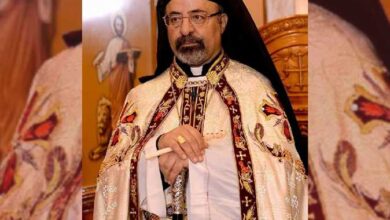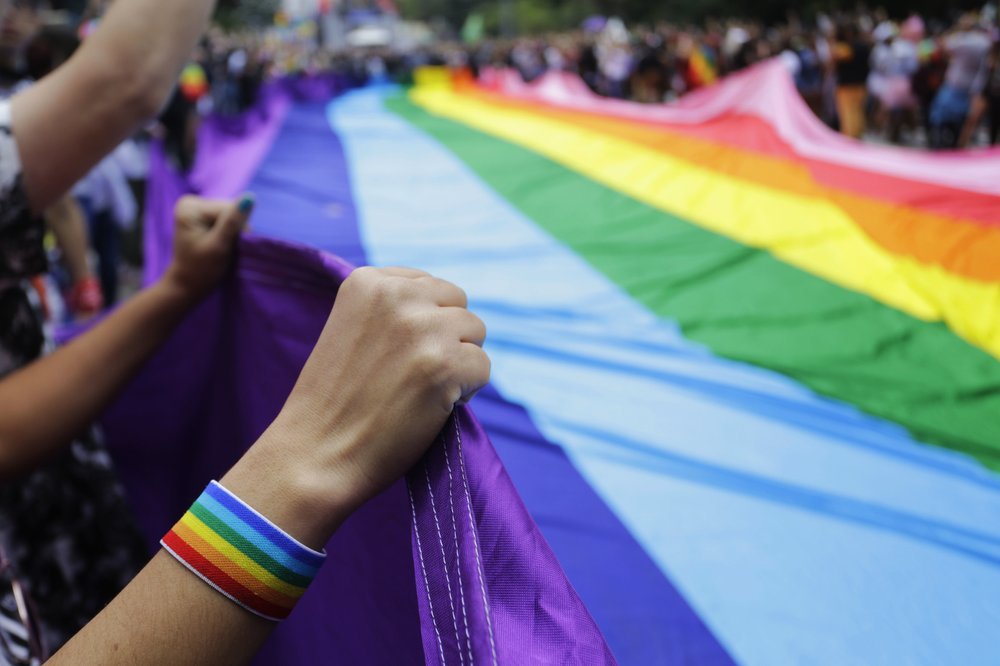Egyptian journalist Ahmed Saad is softspoken and reserved and a devoted Muslim. The 20-year-old is also a self-proclaimed gay rights activist.
With his slight frame, Saad seems more like a polite high school student than the new face of gay rights activism in the Arab world. Yet his convictions never falter, and he says he is determined to speak out on behalf of gay men, even if he isn’t one himself.
Saad has done extensive research into Egypt’s gay population, learning about homosexuals through what he deemed the only possible method, by pretending to be one, he explained during an interview with Al-Masry Al-Youm. In order to accurately portray gays in his new novel, Shab Takaya, Saad spent time on the gay dating website Manjam.com to connect with gays who he also met in person to understand their lives. He incorporated their stories into his novel’s characters.
Saad’s Shab Takaya, published in December 2010 by Al-Alamiya, is the first Egyptian book that seeks to defend homosexuals on the basis of Islam, and in so doing, offers a complex and seemingly contradictory perspective. It begins with the apparent suicide of Haytham. As the story progresses, the book’s protagonist seeks to uncover the truth behind Haytham’s death, and in the process, discovers the injustice faced by homosexuals in Egyptian society. The book’s primary purpose, Saad said during the interview, is to convince its intended audience–heterosexuals in Egyptian society–to sympathize with the plight of Egypt’s homosexuals and put an end to their societal persecution.
Yet whether Saad’s work actually helps serve that purpose is a matter of interpretation, which explains why since the book’s publication, Saad has fielded insults not only from homophobic heterosexuals opposed to conciliatory aspects of Saad’s message, but also from homosexuals who believe that the writer’s ideas only serve to further stigmatize them.
Based on the writings of the Quran, many Muslims believe that homosexuality is a crime punishable by death. Saad sees this attitude as a disastrous textual misinterpretation, and reminds us that God only punishes those who refuse to atone for their sins. Instead of condemning homosexuals, Saad told Al-Masry Al-Youm, we must “adopt a merciful approach and help them to repent.”
Nevertheless, the book suggests the possibility that homosexuals may be executed if they refuse to commit to a heterosexual way of life. If you think homosexuals should be persecuted, he writes, “don’t forget that God” waited until “after they refused his guidance to sentence them to death.”
Saad explicitly confirmed what the book merely implies. “As the homosexuals of Sodom and Ghomorra were executed because they didn’t heed God’s words, homosexuals should be ‘stoned to death,’ as Islam decrees, if they refuse to reform,” he said. With these words, one cannot help but feel that in the book, Saad deliberately avoided explicit mention of what he sees as the legitimate execution of homosexuals. Perhaps, one suspects, he feared that delineating the stance would go against his mission of persuading a conservative society to become more accepting.
With regard to his position on homosexuals, the true sin is unwillingness to change, not homosexuality itself. Believing that every gay man deserves a second chance at heterosexuality, Saad is determined to become an advocate for that second chance by speaking out on behalf of gay Muslims, a group he affirms, that faces more difficulties than any other oppressed section of Muslim society. “Homosexuals suffer the most,” Saad asserted in the interview, “and they experience intense psychological turmoil wrought by the necessity to hide.”
Saad is not alone in his condemnation of the unjust treatment, which often includes arrest and torture, of homosexuals in Egypt. International criticism surrounding the issue reached a climax in 2001, when Egyptian authorities arrested 52 men, beat them, and forced them to undergo humiliating trials because of their sexuality. Since that time, numerous NGOs such as Human Rights Watch have decried “arbitrary arrests” and prison terms for those accused of engaging in the “habitual practice of debauchery,” a phrase that covers the practice of consensual sex between men.
Saad is also not the first Muslim to criticize persecution of homosexuals. In Irshad Manji’s best-seller The Trouble with Islam Today, published in 2005, the lesbian writer urges Muslims to “democratize the spirit of ijtihad,” or independent thinking, and employ one’s conscience in overcoming homophobia. Scott Kugle’s book Homosexuality in Islam, published in 2010, that denies the presence of verses in the Quran, as well as the authenticity of Hadiths condemning homosexuality. Faisal Alam, a Pakistani American, founded the organization al-Fatiha in 1998, which advocates for gay Muslims.
Saad explained that Islam advocates sympathy and forgiveness: “Society must forgive [homosexuals] for their past, for Allah is a great, merciful forgiver.” As expressed in the book, gays are a direct result of a modern society that “participates in young men's conversion to homosexuality.” Therefore, society should turn inward to examine its own behavior before it begins judging that of homosexuals.
It is a complicated stance that at once calls for forgiveness and asserts that homosexuality is acquired, and curable. Saad shakes his head in dismay as he recounts approaching all the major publishing houses and bookstores with his novel, only to be rejected over and over again because of the text’s incendiary subject matter. Although he eventually found a publisher, his book is all but forbidden to the public. Even in the few stores that carry it, Shab Takaya is not on display and must be obtained by specific request.
In the story, Saad blames Haytham’s sexual orientation on his lack of a loving family environment; his father gives him the cold shoulder and his mother is anything but a nurturer. He even pinpoints the moment in which Haytham is ‘converted’ to homosexuality: A classmate “whispered into his ear” and persuaded him that homosexual activity was exciting and allowable. Society’s intolerance, however, precludes a second conversion, a return to heterosexuality, because it denies homosexuals the moral and financial support–namely therapy–necessary to make the transition.
According to Saad, there are those who “surrender” to their homosexuality, and those who regard it as a medical condition with societal and religious facets. The former proliferate in the West. In the book, the character sheikh explains that when people in Europe and America were freed from religious requirements, they abandoned morality and “the direction of [their] bodies turned entirely to the path of sin.”
Members of the other group view their sexual orientation as a disease to be treated. Saad sees the treatment process as a heroic struggle in which men fight their instincts with the help of a doctor, and “hope for God's reward.” Fortunately for them, this ‘reward’ is virtually guaranteed; even those who fail to succeed in their ‘conversion’ find redemption in God’s eyes because of their efforts. The simple act of seeking treatment, Saad explains, “brings them closer to God.” Shab Takaya thereby envisions a society that treats homosexuality as a curable infection, in which the individual receives adequate support during the treatment process.
“I see it as a disease that’s possible to treat. This was proven by many people who were able to overcome the difficult treatment stage. They changed and the matter was resolved,” wrote Saad on the social networking site Facebook.
Saad adamantly opposes the idea of homosexuality as biological and unchangeable. He labels the “nature vs. nurture” argument as unsound and predominantly western, and insists that no individual is born with an unalterable sexual preference. “For every sin in Islam,” Saad explained during the interview, “there is a method to avoid or reverse that sin.”
What about homosexuals who refuse treatment because they do not wish to change or those who believe that homosexuality is their individual right? He said during the interview that there is no such thing as an individual right to homosexuality: “I do not support homosexuals who do not want to change. I support those who do. I know that my view isn't Western and may seem backward to you, but it's my belief.”
For more information about the book, including reactions to the book and places to purchase it, visit Ahmed Saad’s Facebook group (in Arabic) at http://www.facebook.com/group.php?gid=137987936228649



